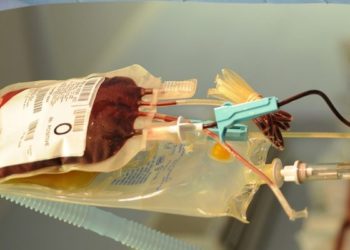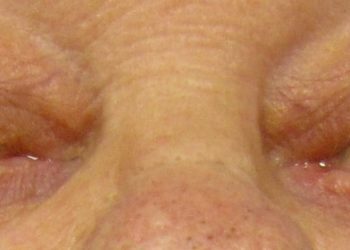Autologous hematopoietic stem cell transplantation associated with long-term remission in myasthenia gravis
1. This retrospective cohort study examined seven patients with myasthenia gravis (MG) refractory to immunosuppressive therapy who underwent autologous hematopoietic stem cell transplant (HCST) and demonstrated durable clinical remission.
2. Complications of autologous HSCT in this population included viral reactivation and secondary autoimmune conditions, but no treatment-related mortality was observed.
Evidence Rating Level: 2 (Good)
Study Rundown: Myasthenia gravis (MG) is an autoantibody-mediated condition that results in significant, potentially life-threatening, neuromuscular weakness. A subset of patients has ongoing symptoms despite immunosuppressive therapies. Autologous hematopoietic stem cell transplant (HSCT) following immune-ablative therapy replaces the auto-reactive immune system with a system tolerant towards native cells. Autologous HSCT has been previously used to treat autoimmune conditions such as multiple sclerosis and neuromyelitis optica.
This retrospective cohort study examined the clinical course of seven patients with MG refractory to standard therapy who underwent autologous HSCT. After a median follow-up of 40 months, all patients were in complete stable remission without need for any ongoing therapy for MG. Short term complications of autologous HSCT therapy included mucositis, febrile neutropenia, and viral reactivation. One patient developed acquired amegakaryocytic thromobocytopenia secondary to autologous HSCT after 2 years. While this study demonstrated efficacy of autologous HSCT, its small size prevents generalizability and underestimates treatment-related complications.
Click to read the study, published today in JAMA Neurology
Relevant Reading: Autologous haematopoietic stem cell transplantation for aggressive multiple sclerosis: the Swedish experience
In-Depth [retrospective cohort study]: The described study examined the clinical course of seven patients who underwent autologous HSCT for treatment refractory moderate to life threatening (Grade III-V) MG managed at the Ottawa Hospital from January 2001 to December 2014. MG severity was graded by the Myasthenia Gravis Foundation of America clinical classification and HSCT complications were graded by Common Terminology Criteria for Adverse Events (CTCAE). Patients were on a variety of MG directed therapy prior to HSCT including: pyridostigmine, corticosteroids, plasma exchange, and intravenous immunoglobulins. Immuno-ablative conditioning regimes also differed amongst the 7 patients and included cyclophosphamide, total body irradiation, antithymocyte globulin, and busulfan.
No treatment or MG related deaths were recorded after median of 40 months follow up, however one patient passed away from pre-existing follicular lymphoma. All patients were in complete stable remission (CSR) at last follow-up without MG symptoms or ongoing MG directed therapy. During the autologous HSCT process, temporary complications included febrile neutropenia in 3/7 patients, grade 3 mucositis in 2/7 patients, and viral reactivation (CMV, VZV, HSV, or BK virus) in 4/7 patients. One patient developed amegakaryocytic thromobocytopenia as a complication of HSCT therapy after 2 years.
Image: CC/Wiki
©2016 2 Minute Medicine, Inc. All rights reserved. No works may be reproduced without expressed written consent from 2 Minute Medicine, Inc. Inquire about licensing here. No article should be construed as medical advice and is not intended as such by the authors or by 2 Minute Medicine, Inc.







